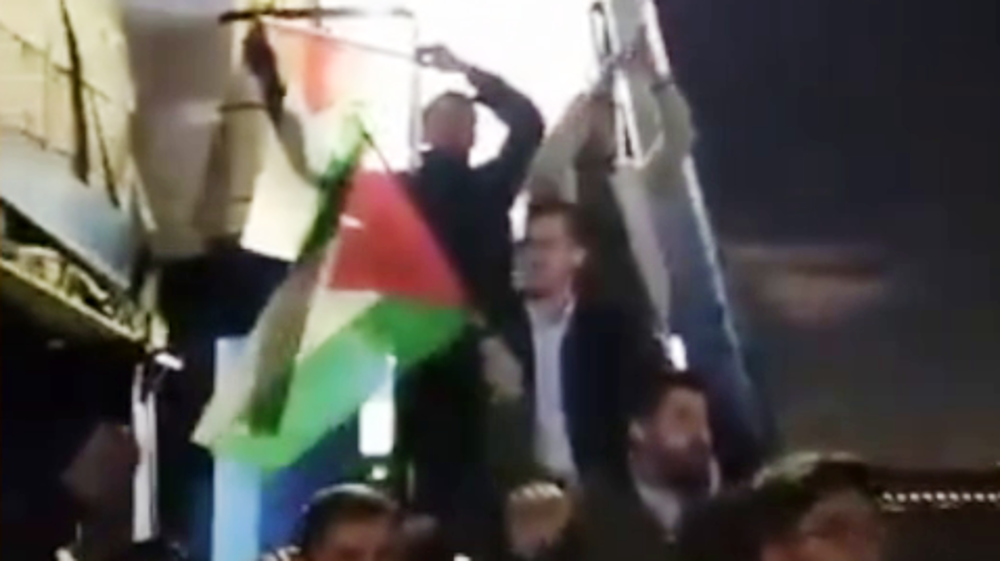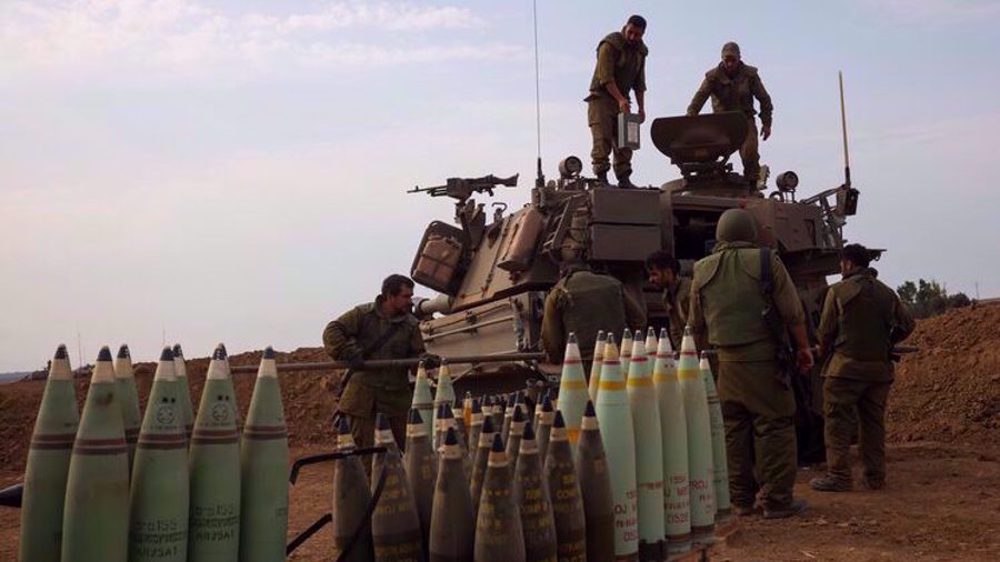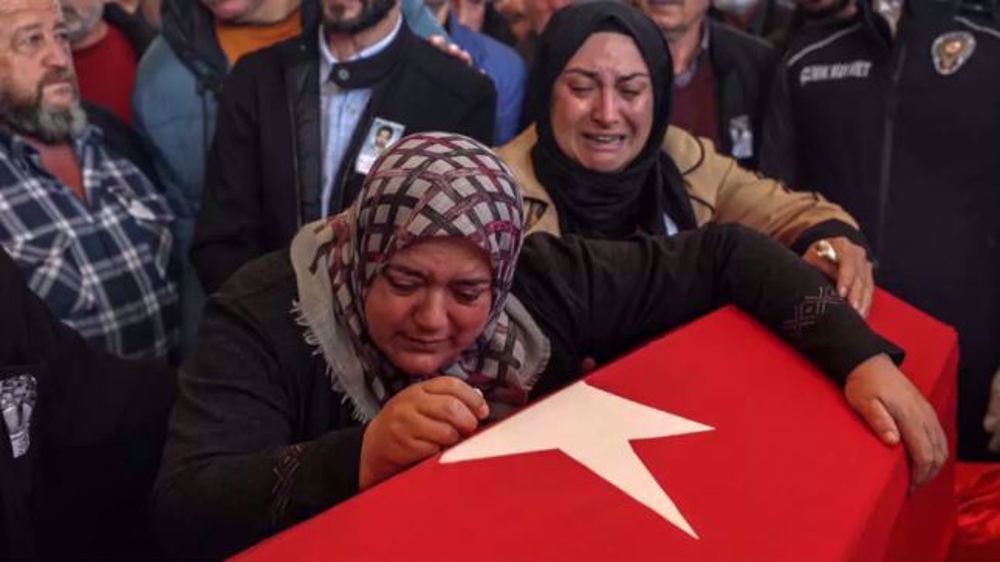Erdogan blasts UK diplomat for selfie with whistleblower journalist
Turkish President Recep Tayyip Erdogan has censured a British diplomat for posting a selfie on Twitter with one of the two journalists on trial for revealing Ankara’s role in arming Takfiri militants in Syria.
British Consul General Leigh Turner and a number of other Western diplomats and ambassadors showed up at an Istanbul court during Friday’s trial of Cumhuriyet Editor-in-Chief Can Dundar and the paper's Ankara representative Erdem Gul, who are facing charges of espionage, treason and revealing state secrets.
"The consul general of a certain country went to the trial of a journalist charged with espionage, to support him. Moreover he gets a picture taken cheek to cheek (with the journalist) and had it published," Erdogan was quoted by the state-run Anadolu news agency as saying on Monday, citing a speech to Turkey's War Academy.
Turner’s photograph of himself with Dundar before the start of the first session of the trial accompanied his tweet that read, "Key point not comparisons or history but Turkey deciding for itself what kind of country it wants to be."
"And he does not stop at that, on social media he says things like 'Turkey needs to decide what kind of country it will be', words that exceed their intended meaning," the Turkish president added, without mentioning the name of the British diplomat.
"If this person could still go on working here that's because of our generosity and hospitality. If it were another country they wouldn't let a diplomat who exhibits this kind of behavior to stay there a day more," the news agency quoted him as saying.
The journalists were arrested in late November last year for publishing video footage in May purportedly showing trucks belonging to Turkey’s National Intelligence Organization (MIT) ferrying weapons in January 2014 to Takfiri terror groups operating in Syria. The daily said the trucks were carrying about 1,000 mortar shells, hundreds of grenade launchers and more than 80,000 rounds of ammunition for light and heavy weapons. Ankara, however, denied the allegation, saying the trucks had been carrying humanitarian aid to Syria.

The two, who deny the espionage charges that can carry life sentences, spent over 90 days in pre-trial detention but were released in February after the Constitutional Court ruled their rights had been violated. Erdogan, who had personally filed a criminal complaint against the journalists, said in late February that he didn’t “obey or respect the decision" by the Constitutional Court.
Erdogan’s request to be one of the plaintiffs was accepted by the court, which ruled on Friday that the trial should be held behind closed doors.
Meanwhile, a Turkish official said that some governments’ social media posts from the hearing could amount to interference with an independent judicial process, and warned those countries to respect the principle of impartiality in the trial of the journalists.
In an open letter to Prime Minister Ahmet Davutoglu on March 24, dozens of prominent writers including Nobel laureates called on the administration to drop charges against the Cumhuriyet journalists. The PEN International letter expressed concern over the "increasing climate of fear and censorship and the stifling of critical voices in Turkey."
Israeli strike on Lebanon kills at least 15 people
Israeli forces kill 7 more Palestinians in West Bank
VIDEO | US presidential election
Netanyahu fires military affairs minister Gallant
Hezbollah attacks turn Israel’s Haifa into a ghost town
Iran’s FM meets Pakistani PM, discusses bilateral ties, Israeli atrocities
Iran ramps up gasoline output amid rising demand
UK foreign secretary under pressure over denial of genocide in Gaza














 This makes it easy to access the Press TV website
This makes it easy to access the Press TV website